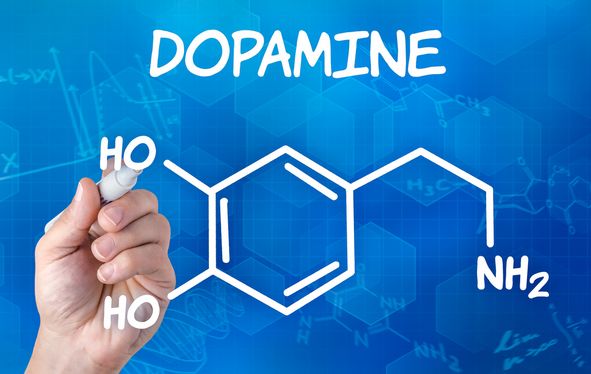First, let’s start in doing what dopamine is and why it’s extremely important. Dopamine comes from a specific amino referred to as Tyrosine. Dopamine is definitely a vital neurotransmitter which has a host of numerous role’s it plays in your body, a few of which helps to guide thinking processes. Memory, mental focus, concentration, emotional states, movement and sleeping are just a handful of those vital roles. It possesses a extremely important role in supporting both our mental and physical health.

Dopamine originates from an area from the brain called the substantia nigra. The substantia nigra is really a group of neurons that leave dopamine for that nervous system (CNS). Exactly how the mind works is really a highly complicated process of signals and nerve transmissions. Neurons from the brain actually release chemical messengers (known as neurotransmitters) through their synapses (nerve endings) that visit the other synapses and provide specific signals. Neurotransmitter’s are continually being released in the synapses and reabsorbed. This is the way mental performance is able to communicate so quickly.
Dopamine’s process from the mental faculties are highly complex, but I’ll try and break it into a quantity where exercise session be aware of it. When dopamine deficiency is released, it needs an area to travel. Where it travels are known as receptors. The dopamine molecule fits together being a locksmith with the receptor, creating an action with the neuron. The material that the dopamine molecule was carrying will be continued using the neuron which it reaches also it continues until it spreads during the entire entire central nervous system. After all of the receptors are loaded with the dopamine molecules, one’s body needs to reuse the dopamine that wasn’t utilized. This is whats called reuptake in medical terms. Re-uptake is often a process that permits the dopamine levels (and all sorts of other neurotransmitter levels) to keep steady. There’s also a process referred to as negative feedback loop that prevents an excessive amount a neurotransmitter from being produced. The problem with most people is their dopamine receptors become inactive or destroyed, as well as the precursors to doopamine.
Getting the proper amounts of dopamine inside the brain and nervous system will assure these:
Reduced cravings
Reduced addictions
Higher level of motivation
Reduced numbers of depression.
Reduced anxiety
Advanced of clarity while focusing
Satisfaction in personal life
Healthy love life
Low dopamine levels present in several different ways in a variety of people. The most typical negative effects experience are depression and laziness. Men and women do not have the energy and motivation to perform daily activities which they never had problems performing before. Making decisions and emphasizing activities also becomes a problem when dopamine levels are inadequate. could possibly have trouble focusing or selection. Becoming cold as well as the wherewithal to lose weight are the other common unwanted effects of low dopamine levels.
Low dopamine levels can be created with a variety of reasons. A number of the known causes to help with low dopamine levles are:
High use of caffeinated foods and beverages
Alcohol
Saturated fats. (take out, poor meat, etc.)
Refined foods like white sugar, white flour and white breads.
High stress levels from the work place possibly at home.
Insomnia.
Poor dietary habits
Prescriptions (consult your doctor for a report on those that)
Illegal drug abuse (marijuana, cocaine, etc.)
I will enter detail more on drugs and exactly how they influence dopamine over a physiological level. There are countless drugs that have both good and bad effects on dopamine. Additionally, there are specific enzymes that really help in the break up of dopamine. These enzymes are classified as monamine oxidase’s (mostly known as MAO.) The molecules that bind to dopamine receptors and stimulate dopamine these are known as agonists. About the opposite side of the coin, molecules that bind on the receptors , nor stimulate dopamine release are known as antagonists. In short, agonists elevate levels and antagonists prevent dopamine from hitting theaters.
As pointed out above, illicit drugs negatively impact dopamine levels from the brain and neurological system. Some drugs, such as amphetamine (also known as speed) and cocaine manage to get thier desired physical effect by affecting the release of neurotransmitters in the brain. A lot of people think they slow up the degrees of dopamine, while in fact, they increase the degrees of dopamine. Physiologically, what they do is prevent dopamine re-uptake after it has been released by destroying receptors, thus preventing the negative feedback loop. Long term drug abuse makes a concept called sensitization, which is where the body is constantly produce more dopamine plus much more receptors simply because actually becoming destroyed as well as the negative feedback loop becomes distorted. Long story short, avoid illicit drugs to ensure adequate neurotransmitter balances inside the brain.
Now you could be wondering tips on how to elevate your dopamine levels, right? Well, for those who have low levels of dopamine, you can consume foods containing tyrosine to correct the imbalance. Almonds, sesame seeds, dairy foods, bananas, and avocados are common good dietary options for tyrosine.
Nutritional dopamine supplements is usually the most efficient approaches to improve your dopamine level as well as lowering most the outward symptoms in the above list. You will find a number of products on the market to date that will help with dopamine levels. The dopamine supplement we recommend most to our patient’s and customers is Balance-D. It’s a tested supplement to increase dopamine levels. The inside effects of NeuroScience’s Balance-D are extremely few and far between with hardly any unwanted effects in when compared with many drugs.
Dr. Jacob Canfield is a chiropractor which includes seen over 10,000 patient’s and contains special certifications in nutrition and professional grade supplements. He has practiced in Atlanta, Georgia and Detroit, Michigan and holds degrees in Biomedical Science and Biology.
More info about dopamine and depression see this site: read
